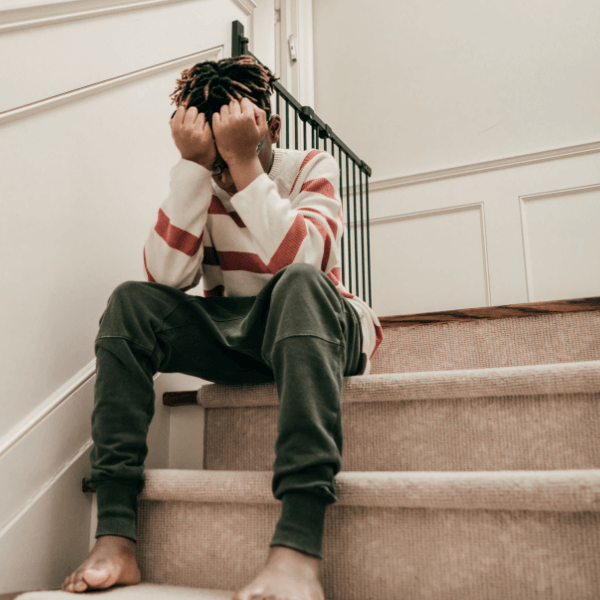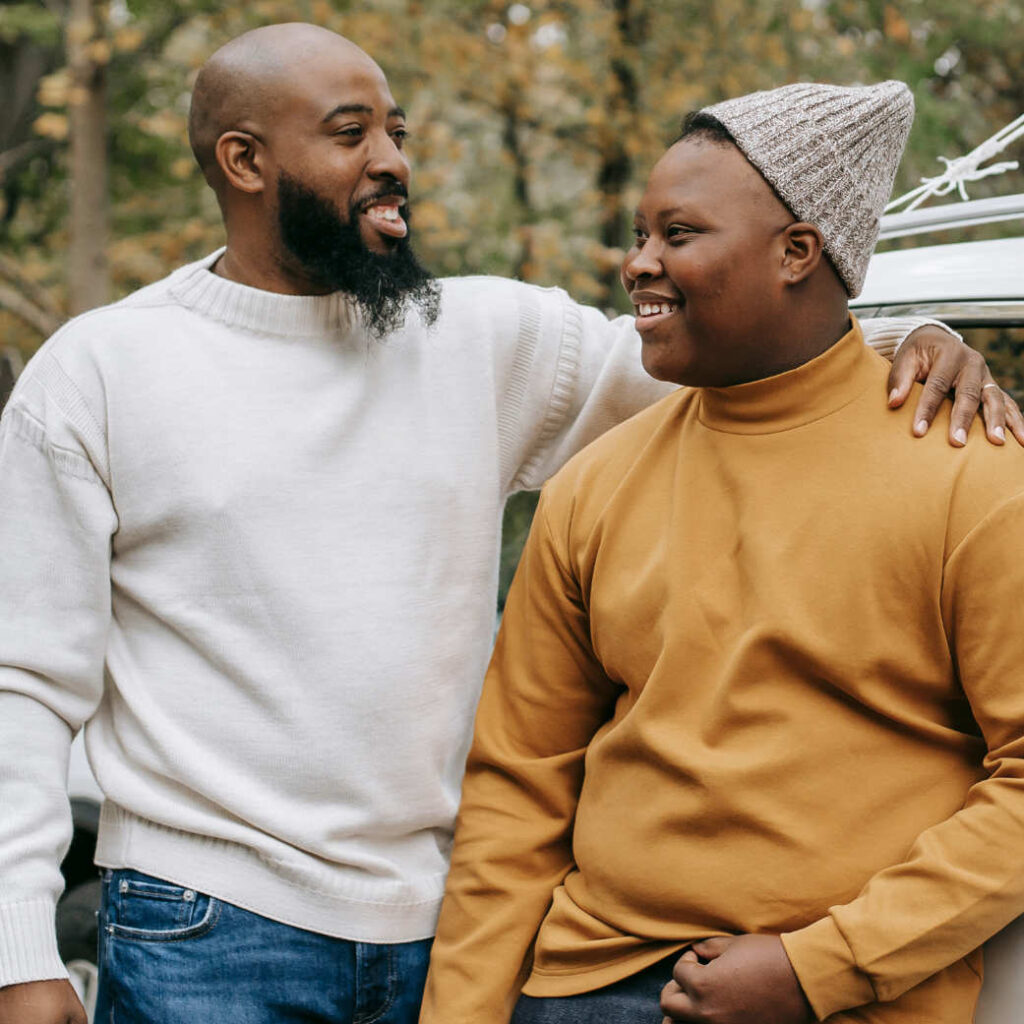United Healthcare Obsessive Compulsive Disorder (OCD) Therapy and Treatment for Teens in Dallas, Texas
Obsessive-compulsive disorder (OCD) is a challenging mental health disorder that can disrupt the life of your teenager and your family. BasePoint Academy offers specialized care for adolescents who are searching for help with their mental health conditions. Don’t let OCD control your life. Call BasePoint Academy today to verify your UnitedHealthcare OCD coverage and learn more about treatment.
Call BasePoint Academy admission specialists to answer your questions about insurance coverage and treatment.
UnitedHealthcare OCD Therapy and Treatment for Teens in Dallas, Texas
BasePoint Academy, nestled in the heart of Texas and serving the greater Dallas-Fort Worth area, is dedicated to offering specialized care for teenage boys and girls grappling with obsessive-compulsive disorder (OCD). Our facilities, located in Arlington, Forney, and McKinney, are equipped to provide comprehensive dialectical behavioral therapy programs tailored to meet the unique needs of each teen. This evidence-based approach ensures that every young individual in our care receives the support necessary to manage their OCD effectively, fostering an environment of healing and growth.
Understanding the importance of accessible care, BasePoint Academy proudly partners with UnitedHealthcare insurance. This collaboration may cover a range of services including Teen OCD treatment, ensuring that families in Texas—from Dallas to Garland and Plano—can find solace in knowing that help is within reach. Whether it’s initiating the journey with OCD testing and assessment or navigating the path of ongoing treatment, our commitment is to offer a beacon of hope. We encourage families seeking compassionate, professional care for Teen OCD to explore how our partnership with UnitedHealthcare can make a difference in the lives of their loved ones.
Exploring the Famous Cities of the Lone Star State
Dallas, Texas, has a rich history and is now the 9th largest city in the U.S. It is likely best known for its iconic cowboy culture and the NFL Dallas Cowboys, which has been nicknamed “America’s team.” From humble beginnings as a frontier town, Dallas is now a thriving business hub.
Dallas has many outdoor spaces including the 3.5-mile Katy Trail that runs through the city and the Trinity River Audubon Center that sits on 120 acres of nature preserve. Just south along the Gulf Coast sits Houston, center to NASA’s astronaut training and flight control. South and slightly West is Austin, the state capital, and home to the University of Texas. South of Austin is San Antonio, home to the 18th-century Spanish mission, the Alamo, which played a crucial role in the 1836 battle for Texas’s independence from Mexico.


What are Some Signs of Obsessive Compulsive Disorder?
Obsessive compulsive disorder (OCD) is a long-lasting mental health condition in which a teenager can experience intrusive and uncontrollable thoughts that typically trigger repetitive, compulsive behaviors. While OCD causes significant interference with daily life, treatment can help manage the condition. Some common obsessions include a fear of losing or misplacing something and a fear of germs or contamination.
These obsessions can result in repetitive behaviors such as compulsive counting or hand washing. Not all repetitive thoughts are obsessions and not all habits are compulsions. However, people with OCD typically have a difficult time controlling their behavior, even when they know that what they’re doing is excessive. Sometimes, your teenager may avoid a situation they feel will trigger symptoms or they may choose to use drugs or alcohol to self-medicate.
Teenage OCD Statistics in Texas
Obsessive-compulsive disorder (OCD) can appear anytime in the years from preschool to adulthood, but more frequently appears in the late teens through adulthood. While symptoms of OCD are frequently unrecognized, underdiagnosed, and undertreated, roughly 1 in every 200 children and teens have OCD.
Women tend to report symptoms during or after puberty, with significantly higher rates of depression and anxiety disorders than men. One type of cognitive behavioral therapy – exposure and response prevention – has shown a success rate of 50% to 60% with significant improvement consistent 2 years later.

UnitedHealthcare OCD Treatment Admissions and Intake
Our complimentary assessment with a licensed clinician will provide you with a recommendation for the appropriate level of care for your teen struggling with mental health. We can also check your insurance coverage levels.
Call us today to schedule a complimentary same-day assessment at (972) 357-1749 or complete our inquiry form.
UnitedHealthCare Obsessive-Compulsive Disorder Admissions form

Who is UnitedHealthcare (UHC)?
UnitedHealthcare was founded in 1977 and is now the health benefits arm of UnitedHealth Group. The organization’s mission is to impact communities by improving health equity, so the system works for everyone. UnitedHealthcare attempts to understand community challenges and develop programs to address access to healthcare.
UnitedHealthcare offers benefit plans for groups, employers, individuals, and managed care products for people on Medicare and Medicaid. Currently, the network includes over 6,700 hospitals and other healthcare facilities and 1.3 million physicians and healthcare providers.
Does UnitedHealthcare Cover OCD Treatment for Teens in Texas?
The admission specialists at BasePoint Academy frequently ask the question, does UnitedHealthcare cover teen obsessive-compulsive disorder (OCD)treatment in Texas? The answer is yes, your UnitedHealthcare insurance policy typically offers coverage for OCD treatment. There are two laws that regulate health insurance coverage for mental health conditions and substance use disorders.
The 2008 Mental Health Parity and Addiction Equity Act is a federal law that forbids health insurance plans from imposing greater benefit limitations on the treatment of mental health or substance use disorders than on medical and surgical benefits. The 2010 Affordable Care Act mandates that all health insurance plans written after 2010 include coverage for essential health services, including mental health conditions and substance use disorders. Your benefits can vary. Call BasePoint Academy today at (972) 357-1749 to verify your insurance coverage and request a free assessment.
Does UHC Cover Psychiatrist Visits for OCD in Texas?
Yes, UnitedHealthcare teen counseling coverage typically covers some level of treatment by a psychiatrist for OCD. A psychiatrist is an individual who completed an MD or a DO and then went on to specialize in mental health care. These are physicians who have an in-depth knowledge of both physical and mental health and are responsible for prescribing and monitoring medication for OCD.
This includes an evaluation of how the medication affects your child’s brain chemistry and neurotransmitters. Psychiatric intervention is essential to the overall customized treatment plan for your teenager with OCD. Psychiatrists play an integral role in adolescent mental health issues and providing mental health support.
Does UnitedHealthcare Cover OCD Therapy and Counseling for Teens in Texas?
Therapy and counseling are part of treatment for OCD in teens and UnitedHealthcare offers some coverage level for therapy and counseling. The licensed mental health professionals at BasePoint Academy integrate adolescent therapy with medication management to help teenagers control intrusive thoughts and compulsive behaviors that are typical of obsessive-compulsive disorder.
UnitedHealthcare teen therapy coverage typically includes anxiety management, stress management, and mental health support as part of treatment for obsessive-compulsive disorder. The overall goal of treatment is to help reduce teenage stress and improve your teenager’s well-being. UnitedHealthcare Texas wellness programs can also be integrated as an outpatient to help support your teenager’s recovery.
Does UHC Cover Medication for OCD in Texas?
UnitedHealthcare Texas plans typically offer some coverage level for medication management in the treatment of obsessive-compulsive disorder. Medication is often crucial to the initial treatment, helping to reduce intrusive thoughts and control compulsive behaviors. Treatment options also include behavioral management, such as cognitive behavioral therapy CBT or exposure and response prevention (ERP).
The types of medication that have been most effective for teenagers with OCD are called selective serotonin reuptake inhibitors (SSRIs). These are traditionally used as antidepressants but can also help address the symptoms of OCD. However, not all antidepressants help OCD symptoms, so it is crucial to work with a psychiatrist who is educated and trained in the medication management of OCD in adolescents.
BasePoint Academy Accepts health Insurance
We accept most major health insurance providers in Texas and can check your treatment coverage levels on your behalf
Teen OCD Treatment Centers in Texas that Take United Healthcare Insurance
BasePoint Academy has several facilities in and near the Dallas, Texas, area. Each facility is staffed with licensed mental health professionals and counselors who are educated and trained in treating adolescent psychology and behavior. Adolescents are different from adults and require specialized care to address their needs. No matter which BasePoint Academy center you choose, your teenager will receive the same excellent level of mental health treatment.
- Arlington, Texas: 3900 Arlington Highlands Blvd, Suite 237, Arlington, TX 76018
- Forney, Texas: 713 W Broad St, Suite 200, Forney, TX 75126
- Frisco, Texas: 8275 Judges Way, Suite 100I, Frisco, TX 75036
- McKinney, Texas: 4733 Medical Center Drive, McKinney, TX 75069

Treatment Center in Arlington, Texas
Arlington, Texas, was founded in 1876 and incorporated in 1884. Today, the city has a population of over 390,000 and sits on roughly 100 square miles. Residents have access to 4,600 acres of parkland and 85 miles of park trails. The city is home to the University of Texas at Arlington, the NFL Dallas Cowboys, and the MLB Texas Rangers.
- BasePoint Academy – Arlington, Texas: 3900 Arlington Highlands Blvd, Suite 237, Arlington, TX 76018, United States
Treatment Center in Forney, Texas
Forney, Texas, is just 20 miles east of Dallas and known as the “Antique Capital of Texas.” The city is one of the most affordable suburbs in the Dallas-Fort Worth area and has a current population of roughly 27,000 people. The downtown area showcases the city’s rich history with buildings that date back to the late 19th century.
- BasePoint Academy – Forney, Texas: 713 W Broad St, Suite 200, Forney, TX 75126, United States
Treatment Center in McKinney, Texas
McKinney, Texas, is located roughly 30 miles north of Dallas and is home to several businesses and industries, including Liberty Mutual Insurance and Toyota Motor Manufacturing Texas. Residents and tourists can walk through the 289-acre Heard Natural Science Museum and Wildlife Sanctuary to learn more about over 220 species of birds, reptiles, amphibians, and an array of wildflowers and plants. Since 1848, the downtown district has been a favorite and is Texas’s oldest and largest historic district.
- BasePoint Academy – McKinney, Texas: 4733 Medical Center Drive, McKinney, TX 75069, United States
Contact BasePoint Academy Today
Contact us today to schedule a free confidential assessment for your teen with a licensed clinician.
You can also get in touch to talk with our mental health experts about treatment needs, care options and your insurance coverage levels.
Call: (972) 357-1749Check Your InsuranceTeen Obsessive Compulsive Disorder (OCD) Programs Covered by UnitedHealthcare Insurance in Texas
BasePoint Academy offers two highly structured and effective outpatient programs for the treatment of obsessive-compulsive disorder. UnitedHealthcare Texas individual insurance and group insurance plans often include some coverage level for teenage partial hospitalization programs and intensive outpatient programs.
Teenage Partial Hospitalization Programs for OCD Treatment
A partial hospitalization program is a five-day program a week, Monday through Friday, program in which your adolescent attends therapeutic sessions throughout the day. The program offers teenagers treatment for OCD in the least restrictive environment possible so they’re able to learn new skills during the day and return home at night.
UnitedHealthcare teen counseling coverage generally offers coverage for partial hospitalization programs that use evidence-based, holistic approaches to care. You can easily check your health insurance coverage by calling BasePoint Academy at (972) 357-1749 or contact us online to speak with an admission specialist who can verify your insurance and answer your questions about the program and treatment.
Teenage Intensive Outpatient Programs for OCD Treatment
An intensive outpatient program generally runs several days a week for several hours each day. This offers teenagers more support and therapeutic intervention than once-a-week therapy. Physician-led medication management, educational support, and skills training may be included in an intensive outpatient program to treat obsessive-compulsive disorder.
UnitedHealthcare teen therapy coverage often offers some coverage for intensive outpatient programs to treat OCD. BasePoint Academy is one of the rehab centers in Texas that take UnitedHealthcare and offers care in the least restrictive environment that lowers the cost of treatment yet is highly effective and successful. Call BasePoint Academy admission specialists to learn more about how an intensive outpatient program can help your teenager manage their OCD symptoms.

How Much Does OCD Treatment Cost Without UHC Insurance?
Treatment costs can vary widely but is typically dependent on two major factors. The first is the charges from the mental health center for your teenager’s customized treatment plan. The intensity of treatment, as well as geography and the treatment center, have an impact on the overall cost. For example, residential care costs far more than an intensive outpatient program.
The second factor is any financial assistance that you can get which will help offset the charges and therefore reduce your out-of-pocket costs. The admission specialists at BasePoint Academy can suggest several ways to seek financial assistance, including government-sponsored healthcare programs, community-based scholarships, and personal loans.
Contact BasePoint Academy Today
Contact us today to schedule a free confidential assessment for your teen with a licensed clinician.
You can also get in touch to talk with our mental health experts about treatment needs, care options and your insurance coverage levels.
Call: (972) 357-1749Check Your InsuranceHow To Check My UnitedHealthcare Insurance Coverage Levels
Your UnitedHealthcare insurance has a customer service line where you can ask questions about your policy’s benefits, limitations, and exclusions. However, the easiest way to understand your rights and the process needed to secure your maximum benefits is to call BasePoint Academy at (972) 357-1749. Our admission specialist will verify your coverage, and determine the documentation required to submit claims.

Types of OCD Covered by UHC Insurance
Obsessive-compulsive disorder (OCD) is a complex mental health condition that requires specialized care to address the unique symptoms of the condition, as well as the unique developmental psychology that occurs during adolescence. BasePoint Academy specializes in the care of adolescents and can help your teenager with OCD.
The following are some of the types of OCD that are generally covered by UnitedHealthcare Texas, but these are just examples and not a full list. For more information, please call BasePoint Academy at (972) 357-1749.
Contamination and Cleanliness
Contamination and cleanliness are one of the most common and striking types of obsessive-compulsive disorder. Data shows that it can affect up to 46% of individuals with OCD. The condition is characterized by fear of contamination which leads to repetitive and compulsive washing behaviors.
These behaviors can be aimed at the individual, such as hand washing until the skin becomes irritated or bleeding, and at objects, such as compulsive cleaning routines. UnitedHealthcare Texas group insurance and individual insurance plans generally offer some level of coverage for treatment for teenagers who experience contamination and cleanliness symptoms of OCD.
Checking
Individuals with Checking OCD are compelled to repeatedly check on the same things multiple times. For example, they may repeatedly check to be sure the oven is off or that the doors are locked before leaving the house. They can become so obsessed that it interferes with their ability to go about their daily life.
The repetitive behavior is used in an attempt to alleviate anxiety that occurs from intrusive thoughts. UnitedHealthcare Texas coverage is often included for this type of obsessive-compulsive disorder, offering coverage for therapy, counseling, and medication management to reduce symptoms.
Order and Symmetry
Teens with symptoms of order and symmetry experience intrusive thoughts that require items to be symmetrical or to be in perfect alignment. This may include their home, their workspace, and in other people’s space, such as a colleague’s desk or a friend’s home. Items might be arranged and ordered, or your teenager may feel compelled to tap or touch objects.
UnitedHealthcare OCD coverage typically includes treatment for order and symmetry, including medication, therapy, and counseling. A physician-led medication management program is available at BasePoint Academy alongside licensed mental health professionals who are educated and experienced in treating adolescents with obsessive-compulsive disorder.
Hoarding
Compulsive hoarding is a form of obsessive-compulsive disorder and is separate from a hoarding disorder. The distinguishing characteristic is the reason why the individual hoards items. In a hoarding disorder, teens accumulate items because they believe they’re valuable, while in an individual with OCD, it is generally an unwanted response.
UnitedHealthcare Texas generally covers treatment for hoarding OCD, including exposure and response prevention (ERP) therapy. Using repeated exposure to thoughts without engaging in compulsive behavior has been found to be an effective way to treat OCD in the majority of teenagers and adolescents.
Body-Focused Repetitive Behaviors (BFRBs)
Body-focused repetitive behaviors (BFRBs) are intense urges in which your adolescent engages in destructive behavior such as picking, pulling, or biting themselves. BFRBs are different from self-harming rituals and are related to obsessive-compulsive disorder. Teenage stress, teenage peer pressure, and challenges can all play a role in BFRBs.
UnitedHealthcare generally offers treatment for BFRBs including skin picking, nail-biting, or the urge to bite or suck on your inner lip or tongue. Behavioral therapies, such as cognitive-behavioral therapy (CBT) have proven to have success in giving individuals greater control over these obsessive behaviors.
Scrupulosity
This form of OCD involves moral or religious obsessions. Your teenager may be overly concerned about a sin or a violation of moral or religious doctrine. This subtype can affect people of all ages and common obsessions include a fear of having sinned, going to hell, or being punished by God.
Your teenager may fear being possessed, death, or the loss of impulse control. Additionally, you may observe overly moral behavior or excessive striving to attain purity. UnitedHealthcare Texas recognizes the need for treatment for obsessive-compulsive disorders in teenagers and typically offers some level of coverage. You can check your policy’s benefits and limitations by calling BasePoint Academy at (972) 357-1749.
BasePoint Academy: Your In-Network UHC OCD Treatment Partner in Dallas, Texas
At BasePoint Academy, we’re here to support teenagers navigating the complexities of obsessive-compulsive disorder (OCD) with open arms and expert care. Our three facilities, strategically located near Dallas, TX in Arlington, Forney, and McKinney, are designed to be sanctuaries of healing for teens struggling with OCD. We take pride in accepting United Healthcare insurance, making our comprehensive, evidence-based treatment programs accessible to those in need. Our team is dedicated to providing individualized care that addresses the unique challenges of each teen, fostering an environment where they can thrive and find balance.
Understanding the journey to recovery begins with the right diagnosis and treatment plan, BasePoint Academy offers a range of services covered by United Healthcare insurance. This includes OCD testing, therapy, medication, and specialized treatment programs tailored specifically for teenagers. We believe in a holistic approach to wellness, combining medical excellence with compassionate care to support not just the teen, but their family as well. If you or someone you love is facing the challenges of OCD, we encourage you to reach out to BasePoint Academy for a free assessment. Let us be the first step towards a brighter, more balanced future.
Related Guides on United Healthcare Insurance Coverage Levels
Insurance and Payment Options for Teen Treatment
Texas Teen OCD Related Statistics
- OCD can show up anytime from preschool years through adulthood, but more frequently obsessive-compulsive disorder appears between ages eight and 12 and again during the late teens through early adulthood.
- Roughly 1 in every 200 children and teens have OCD; which means four or five children with OCD are in any average-sized elementary school and in a medium to large high school there could be up to 20 students with OCD. Yet, OCD is frequently unrecognized, underdiagnosed and undertreated.
- Women with OCD tend to report symptoms starting during or after puberty and report significantly higher rates of depression and anxiety than males. Gender may play a role in the onset and presentation of OCD symptoms.
- According to the National Institute on Mental Health, the prevalence of OCD was higher (1.8%) in 2023 than in males (0.5%). Young adults 18 to 29 years had the highest rate of diagnosis compared to people aged 30 to 60+.
- In adults, there were 6% with serious symptoms of OCD, 34.8% with moderate symptoms, and 14.6% with mild symptoms.
- One type of cognitive behavioral therapy – exposure and response prevention – has shown a success rate of 50% to 60% with significant improvement consistent 2 years later.
Effectively Treat Teen Mental Health With BasePoint Academy
We can help your teen and your family address and overcome mental health concerns with expert care and a safe environment. Call today to discover the treatment for long-term healing.







